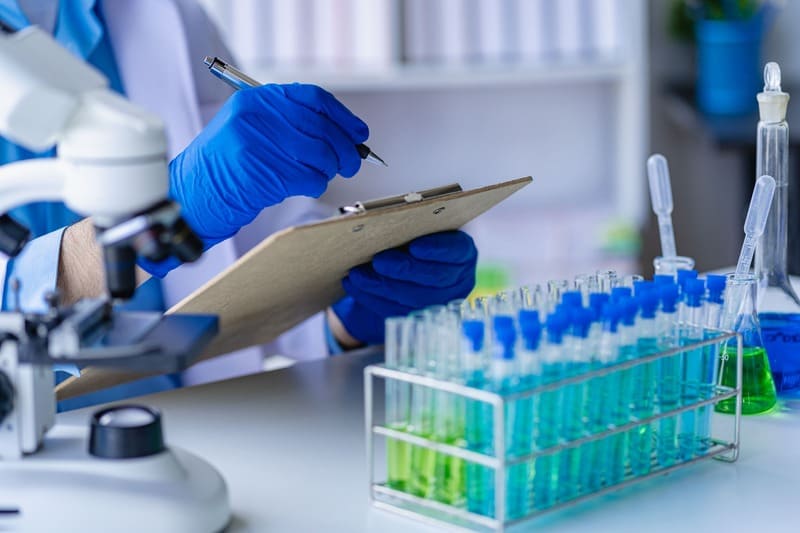
AirMD provides comprehensive consulting services throughout North America. In addition to the services listed above, AirMD offers cause and origin assessments, industrial hygiene studies, environmental claims investigations, catastrophe response, combustion byproduct testing and clandestine investigations.
Environmental testing and consulting involve the assessment, analysis, and management of environmental issues to ensure compliance with regulations, minimize risks, and protect public health and the environment. These services are provided by specialized firms or consultants who have expertise in various environmental disciplines.
Services Offered by Environmental Testing and Consulting Firms
1 – Air Quality Testing:
– Indoor Air Quality (IAQ): Testing for pollutants such as VOCs, mold, radon, carbon monoxide, and particulate matter.
– Ambient Air Quality: Monitoring outdoor air quality for pollutants like ozone, nitrogen dioxide, sulfur dioxide, and PM2.5/PM10.
2 – Water Quality Testing:
– Drinking Water: Testing for contaminants like bacteria, lead, nitrates, and other chemical pollutants.
– Surface and Groundwater: Assessing the quality of lakes, rivers, and groundwater sources for pollutants and ecological health.
3 – Soil Testing:
– Contaminant Analysis: Testing for heavy metals, pesticides, hydrocarbons, and other pollutants.
– Nutrient Testing: Evaluating soil fertility for agricultural purposes.
4 – Mold and Microbial Testing:
– Mold Inspection: Identifying and quantifying mold spores in indoor environments.
– Microbial Contaminants: Testing for bacteria and other microbes in water, surfaces, and air.
5 – Hazardous Materials Testing:
– Asbestos Testing: Identifying asbestos-containing materials in buildings.
– Lead Testing: Testing for lead in paint, dust, soil, and water.
– Radon Testing: Measuring radon levels in indoor air and water.
6 – Environmental Site Assessments (ESA):
– Phase I ESA: Preliminary assessment to identify potential environmental liabilities.
– Phase II ESA: Detailed investigation involving sampling and analysis to confirm and delineate contamination.
7 – Environmental Compliance and Permitting:
– Regulatory Compliance: Ensuring compliance with local, state, and federal environmental regulations.
– Permitting Assistance: Helping obtain necessary environmental permits for various projects.
8 – Remediation Services:
– Site Remediation: Planning and executing the cleanup of contaminated sites.
– Risk Assessment: Evaluating potential health risks associated with environmental contaminants.
9 – Sustainability Consulting:
– Energy Audits: Assessing energy use and recommending efficiency improvements.
– Sustainability Planning: Developing strategies for sustainable practices and reducing environmental impact.
Process of Environmental Testing and Consulting
1 – Initial Consultation:
– Needs Assessment: Understanding the client’s requirements and objectives.
– Scope Definition: Defining the scope of work, including the type of testing and consulting services needed.
2 – Site Inspection and Sampling:
– On-Site Evaluation: Conducting a thorough inspection of the site to identify areas of concern.
– Sample Collection: Collecting samples of air, water, soil, or building materials for laboratory analysis.
3 – Laboratory Analysis:
– Testing: Analyzing samples in accredited laboratories using standardized methods.
– Data Interpretation: Interpreting the results to understand the extent and nature of any contamination.
4 – Reporting:
– Documentation: Providing detailed reports with findings, analysis, and recommendations.
– Compliance Documentation: Preparing necessary documentation for regulatory compliance.
5 – Action Plan:
– Mitigation Strategies: Recommending actions to mitigate or remediate identified issues.
– Implementation: Assisting with the implementation of recommended solutions.
6 – Follow-Up and Monitoring:
– Ongoing Assessment: Monitoring the effectiveness of implemented measures and conducting follow-up testing as needed.
Choosing an Environmental Testing and Consulting Firm
– Experience and Expertise: Look for firms with a proven track record and expertise in the specific areas of concern.
– Accreditation and Certification: Ensure the firm is accredited and the personnel are certified by relevant professional organizations.
– Comprehensive Services: Choose a firm that offers a broad range of services to address various environmental issues.
– Reputation and References: Check the firm’s reputation and ask for references from past clients.
– Cost and Timeline: Consider the cost of services and the timeline for completion.
Environmental testing and consulting play a crucial role in identifying, assessing, and mitigating environmental risks, ensuring regulatory compliance, and promoting sustainable practices. AIRMD test for Allergens Asbestos Testing Building Science Chemical Testing Heavy Metals Lead Testing LEED Certification Mold Testing Pesticides Restoration Project Management Water Quality and Water Loss Assessment.






